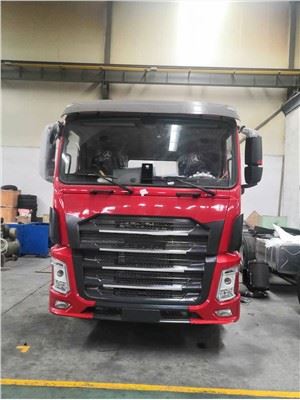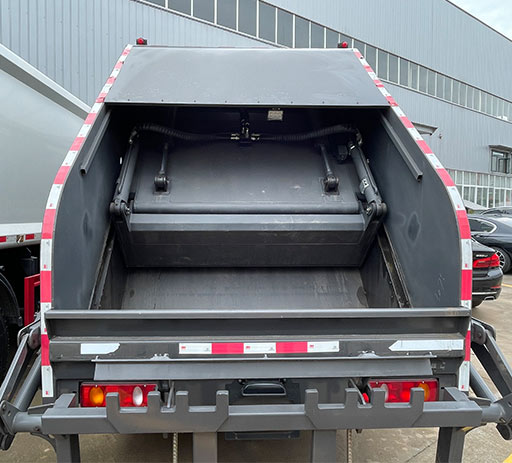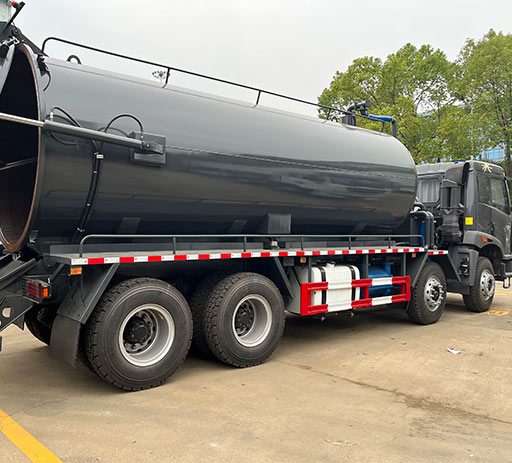Heil Trash Trucks: A Comprehensive Guide to Waste Management Innovation
Introduction
In the realm of waste management, innovation plays a pivotal role in enhancing efficiency and sustainability. One of the key players in this industry is Heil Environmental, renowned for its cutting-edge solutions and advanced technology in trash collection. This article delves into Heil trash trucks, exploring their features, benefits, and practical applications in modern waste management. Whether you are a municipal operator, a waste management company, or simply interested in how your community handles waste, this guide provides an in-depth look at both the product and the heart of waste collection systems.
What are Heil Trash Trucks?
Heil trash trucks are specialized vehicles designed for the efficient collection and transportation of waste materials. These trucks are engineered with state-of-the-art technology that improves collection efficiency and reduces environmental impact.
History of Heil Environmental
Founded in 1901, Heil Environmental has a long-standing history of manufacturing refuse collection vehicles. Over the decades, they have consistently evolved, embracing technological advancements to meet the changing needs of waste management sectors worldwide.
Types of Heil Trash Trucks
Heil offers a variety of trash trucks tailored to suit different types of waste collection operations. These include:
- Front Loader Trucks: Ideal for commercial and industrial waste collection.
- Rear Loader Trucks: Commonly used for residential waste pickup.
- Side Loader Trucks: Designed for automated collection systems and narrow streets.
- Roll-Off Trucks: Perfect for larger job sites and construction debris cleanup.
Key Features of Heil Trash Trucks
Heil trash trucks are known for their advanced features that enhance performance and sustainability. Below are some of the standout features:
Durable Construction
Heil trucks are built with high-quality materials to withstand the rigors of daily waste collection, ensuring longevity and reliability.
Efficiency in Design

The ergonomics and layout of Heil trucks facilitate easier operation, improving both speed and efficiency for waste collection personnel.
Automated Systems
Many Heil models incorporate automation, allowing for efficient and safe waste collection without the need for manual handling. This not only reduces labor costs but also minimizes the risk of injury.
Environmental Considerations

Heil is committed to sustainability. Their trucks are designed to minimize emissions and noise pollution, and many models are compatible with alternative fuel systems.
How Heil Trash Trucks Improve Efficiency
Efficiency is essential in waste collection, and Heil trash trucks are engineered with various tools and technologies that contribute to improved operational effectiveness.
Advanced Handling and Capacity
Heil trucks are designed with strategic dimensions and capacity options to optimize their load and minimize trips to disposal sites. This maximizes productivity, as crews can collect more waste in a single run.
Safety Features
Heil incorporates several safety features into their trucks, including rearview cameras and visibility enhancements. These technologies help reduce accidents and protect both workers and pedestrians during operations.
Practical Examples of Heil Trash Trucks in Use
Understanding how Heil trash trucks operate in real-world settings can provide insight into the effectiveness of this technology in waste management.
Case Study: Urban Waste Management
In major urban areas, municipal services utilize Heil side loader trucks to navigate narrow streets and efficiently collect residential waste. By employing automated arms, crews can maintain productivity while adhering to safety protocols.
Case Study: Construction and Demolition
Construction companies often rely on Heil roll-off trucks to manage debris. Their ability to handle large volumes while remaining versatile has made them a preferred choice for contractors managing large projects.
Choosing the Right Heil Trash Truck for Your Needs
Selecting the right truck is critical for operational success in the waste management industry. Here are some factors to consider when choosing a Heil trash truck:
Operational Requirements
Assess your specific collection needs. Consider the volume and type of waste you’ll be handling, as well as the environment (urban vs. rural).
Budget Constraints
Determine your budget for purchasing or leasing a Heil trash truck. Understand both the upfront costs and the long-term implications related to fuel and maintenance.
Cost-Benefit Analysis Table
| Cost Factor | Initial Costs | Ongoing Costs | Investment Returns |
|---|---|---|---|
| Truck Purchase | $200,000 | $30,000/year | Improved collection efficiency |
| Fuel Efficiency | – | $25,000/year | Lower operational expenditures |
| Maintenance | – | $10,000/year | Uptime and reliability |
Maintenance Tips for Heil Trash Trucks
Regular maintenance is vital for ensuring the longevity and performance of Heil trash trucks. Here are some essential maintenance tips:
Regular Inspections
Perform frequent inspections of critical components such as brakes, tires, and hydraulic systems to identify potential issues before they escalate.
Fluid Checks and Changes
Monitor and change engine oil, transmission fluid, and hydraulic fluid at regular intervals to keep the truck operating smoothly.
Tire Maintenance
Ensure tire pressure is maintained according to manufacturer guidelines. Inspect for wear and replace tires as needed to prevent accidents and ensure fuel efficiency.
Future Trends in Heil Trash Trucks and Waste Management
The waste management industry is continuously evolving. This section discusses emerging trends that may shape Heil trucks in the future.
Electrification and Alternative Fuels

As sustainability becomes more crucial, Heil is exploring electric trash trucks and those using alternative fuels to significantly reduce carbon footprints.
Smart Technology Integration
Adoption of IoT technologies will allow for real-time monitoring of waste levels, enhancing collection route optimization and reducing operational costs.
FAQ Section
What is the average lifespan of a Heil trash truck?
The average lifespan of a Heil trash truck can range between 10 to 15 years, depending on usage and maintenance practices.
Can you customize Heil trash trucks?
Yes, Heil offers customization options for their trash trucks to meet specific operational needs, including body type, size, and equipment integration.
Are Heil trash trucks environmentally friendly?
Yes, Heil prioritizes environmental considerations in their designs, focusing on reducing emissions and noise pollution and offering models compatible with alternative fuels.
What kinds of waste can Heil trash trucks collect?
Heil trash trucks are capable of collecting a wide variety of waste, including residential refuse, commercial trash, recyclables, and construction debris.
How do I find a dealer for Heil trash trucks?
You can find a Heil dealer through their official website or by contacting Heil Environmental for information on local representatives in your area.
What financing options are available for purchasing Heil trash trucks?
Financing options vary by dealer but typically include leasing, loans, and government financing programs. It is best to consult a dealer for tailored financing solutions that meet your needs.
